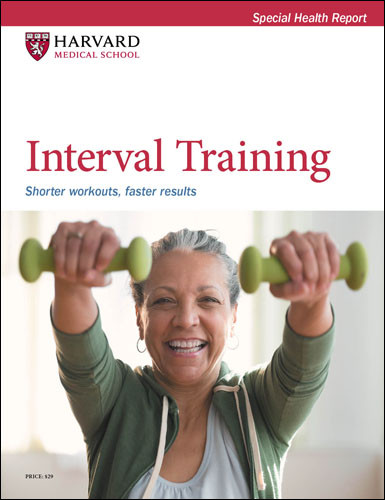Short bursts of evening activity fuel better sleep
Research we're watching
- Reviewed by Toni Golen, MD, Editor in Chief, Harvard Women's Health Watch; Editorial Advisory Board Member, Harvard Health Publishing; Contributor

The study involved 28 people ages 18 to 40 (average age 26, 71% women), all of whom reported normally clocking up to at least five hours of sedentary time during the day and two hours each evening. Participants wore an activity tracker for seven consecutive days. Each person completed two four-hour evening sessions in a lab — one in which they remained seated the entire time, and another where they took three-minute activity breaks every half-hour. During the activity breaks, they did simple resistance exercises consisting of chair squats, calf raises, and standing knee raises with straight-leg hip extensions.
To continue reading this article, you must log in.
Subscribe to Harvard Health Online for immediate access to health news and information from Harvard Medical School.
- Research health conditions
- Check your symptoms
- Prepare for a doctor's visit or test
- Find the best treatments and procedures for you
- Explore options for better nutrition and exercise
I'd like to receive access to Harvard Health Online for only $4.99 a month.
Sign Me UpAlready a member? Login ».
About the Author

Maureen Salamon, Executive Editor, Harvard Women's Health Watch
About the Reviewer

Toni Golen, MD, Editor in Chief, Harvard Women's Health Watch; Editorial Advisory Board Member, Harvard Health Publishing; Contributor
Disclaimer:
As a service to our readers, Harvard Health Publishing provides access to our library of archived content. Please note the date of last review or update on all articles.
No content on this site, regardless of date, should ever be used as a substitute for direct medical advice from your doctor or other qualified clinician.
















